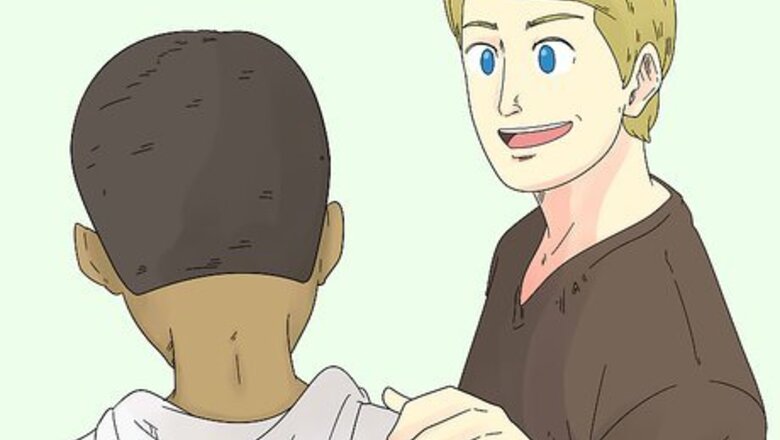
views
Confronting Your Friend
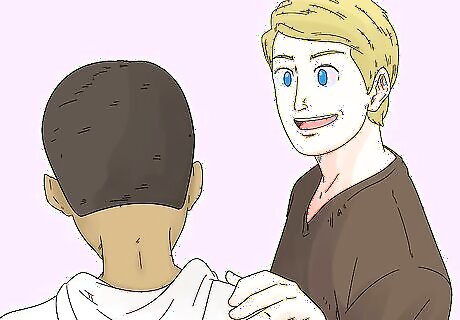
Ask your friend to have a private conversation. Before you make any decisions, it's important that you get to the bottom of the situation. Tell your friend that you'd like to clear some things up, and that you'd appreciate them meeting with you. If you don't see this friend at work or at school, ask them to meet you in a public place such as a cafe. It's best to meet in a public place so that neither of you feel uncomfortable. Always talk to your friend away from other people. You can't have a serious conversation about your relationship issues when other people are around.

Speak calmly. Yelling or getting overemotional won't typically help your situation. Talking in a calm voice will help you get your point across and will also help your friend remain calm. We often think much more logically when we are calm, so you'll be able to better explain your thoughts and feelings if you don't let your emotions get the best of you. Stay calm by taking slow, deep breaths – deep breathing is a great tool to keep you relaxed. If you start to become upset, calm yourself down by internally telling yourself to relax, and/or thinking of imagery that keeps you calm – such as a beach or waterfall. Carry a stress ball to squeeze when you get angry. This is a great way to physically get out your anger and tension in an extremely calm way.
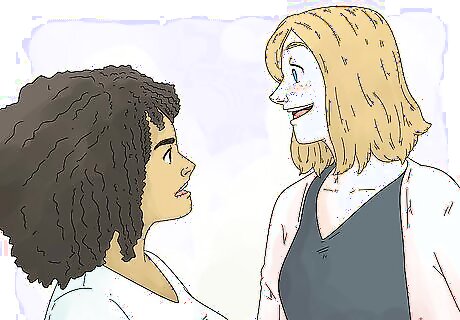
Tell your friend what you've heard. Avoid mentioning names and simply tell your friend whatever you heard they did or said. Express to them how those actions hurt you. The more straightforward you are, the more straightforward they'll be. Seek the truth before you make your final decision. Most of the time, we find out about backstabbing friends through other people. It's important to get your friend's side of the story before you take another person's word as fact. What you've heard about your friend could be a rumor, or it could be true. Either way, it's important to know the truth.

Listen to your friend's side of the story before making assumptions. Tell your friend that honesty is important to you and your friendship, and that you'd like to know the truth. Use open-ended questions to encourage discussion and avoid verbally attacking your friend. If they feel like they have to be defensive, they won't be honest with you. Simply ask what happened and listen attentively. Keep in mind your friend might not have even realized they crossed a line.

Tell your friend how you feel. Be honest with your feelings and don't beat around the bush. Be straightforward when you're telling your friend why you're upset with them and how their actions have made you feel. Remain as calm as possible. Use this guideline to express your feelings: "It upset me when you _______. Your actions made me feel like _______ because _______."

Ask your friend if you did something to bring about their backstabbing. It's important to know whether you have somehow contributed to the issue at hand. Perhaps they feel hurt by you in some way and this is their way of "getting back" at you, or perhaps there has been a misunderstanding. It's important to clarify the possibility that your friend sees things in this light. Avoid interrupting. Let your friend finish talking before you interrupt them or ask additional questions. It's important that your friend feels heard.
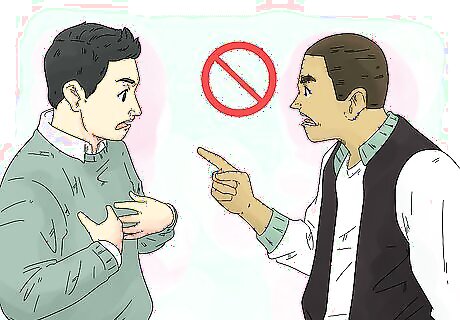
Don't turn the conversation into an argument. If your friend won't answer your questions or continues evading the issue, gently push them for answers, but do not attack them. If you turn this into an argument, it will only cause your friend to withdraw from the conversation. Your friend may feel embarrassed that you found out about their actions, so they may be hesitant to be honest with you. To avoid arguing, be sure to listen to your friend instead of waiting for your turn to talk. Listening to one another will give you both a better understanding of what happened. Don't raise your voice. This will just get both of you upset. Don't focus on who is right and who is wrong – focus on truth and honesty. If you're trying to prove one another wrong, you won't have a productive conversation. Instead, be honest with one another to figure out how to fix the current situation. Don't be disrespectful or condescending. Even if you're upset, it is not okay to disrespect someone, especially if you're trying to fix a problem. It is important to treat your friend the way you wish to be treated. If things start to get tense, suggest taking a short break from the discussion to allow yourselves to cool down.

Get a trusted opinion. Talk to someone else you trust, such as a parent, a spouse, another friend or even a counselor. Discuss what happened with someone neutral who can give you an honest opinion on the situation. Sometimes when we are emotional, we can overlook things that an uninvolved person might notice. It's important to talk with someone who will be honest with you, and not someone who will only tell you want you want to hear. It's also important that you listen to them.
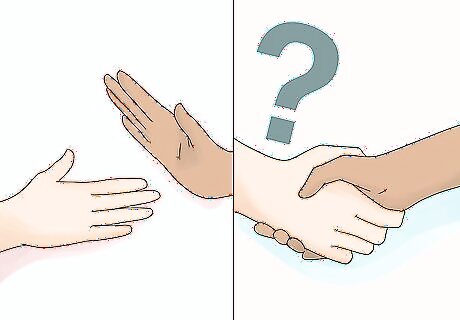
Determine if the friendship is worth saving. If your friend is open and honest with you about their actions, there's a strong possibility that your friendship is fixable. If you and your friend can admit to your mistakes and commit to working on a better friendship, put in the effort to fix things. All of our relationships have their ups and downs, so look at conflict as an opportunity to improve your communication and make your friendship stronger. If your friend is not willing to be honest about their actions, or if this is a recurring issue with this person, it might be best to go your separate ways. Friendship is a two-way street, and you can't be the only person putting in the effort to keep it going.
Repairing Your Friendship
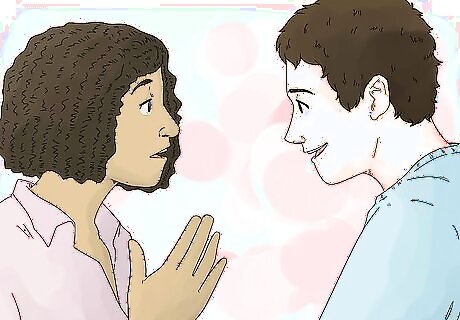
Improve communication with your friend. In all relationships, communication is key. Many fights and misunderstandings stem from a lack of communication. Going forward, it's important to be 100% honest about your actions, boundaries, and feelings in your friendship. If an issue arises in the future, make it clear that you'd like to resolve those issues by talking with each other instead of talking to other people or doing something that either of you may regret. Bring issues up immediately instead of bottling up your feelings. When we suppress feelings and emotions, we are more likely to boil over and say or do something we regret. If a problem arises, address it right away.
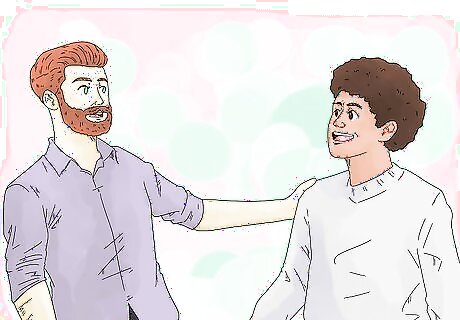
Establish realistic expectations for your friendship. It is important to know what you and your friend expect out of a friendship in order for it to work. For example, you may deal with situations differently, or some things may bother you more than others. This is why you must establish expectations. Tell your friend what you need from them in a friendship. Being honest will help your friend to better meet your needs. Explain to your friend what you need from them using the "I-message" formula: "I feel _____ when you _______ and I need for you to _______." Refrain from assigning blame to your friend, though. Ask your friend what they need from you in a friendship. Again, friendship is a two-way street. Therefore, you need to meet your friends needs as well. Ask them to be honest about how you can be a better friend to them. Be ready to meet both needs. Resolution begins when you start understanding each other and the situation. As you hear similar needs from each other, the differences are put aside and you are able to work things through.

Be willing to forgive. It's impossible to move forward if you are unable to forgive. Holding onto anger or grudges isn't healthy for you and will ruin any chance you have of a real friendship. It takes a lot of strength to forgive, but it will help you grow as a person and as a friend. Tell your friend that you forgive them – it is an important factor in rebuilding trust for both of you. It will mean a lot to your friend to hear that you forgive them, and saying "I forgive you" will help you move on from the situation. If you cannot forgive this person for their actions, you cannot be friends with him or her. Trying to have a relationship with someone you hold anger towards isn't healthy for you or for them. Life is too short to hold grudges.
Ending the Friendship

Remove yourself from the relationship. Although it can be hard, it is sometimes best to end a friendship that has become negative or toxic. If a person continues to hurt you, it's unhealthy to keep them in your life. Once you remove a negative relationship from your life, you'll be able to focus on the true and trustworthy friends that you still have. Tell this person that you no longer wish to be friends with them. Remain calm and keep your "goodbye" conversation simple. You don't owe them any explanation, but it will make you feel better to be honest with them and give yourself closure. If you're unsure of what to say, use this formula: "Because of _______, I no longer wish to be friends with you. Your actions hurt me and made me feel ______."
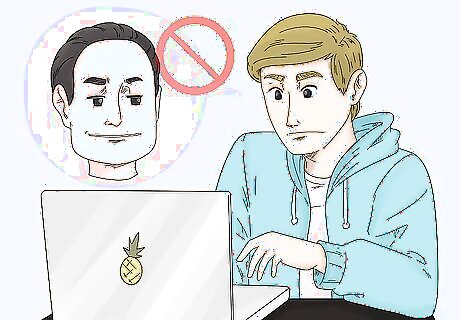
Delete your friend on social media. Technology makes distancing yourself from someone more difficult, so don't leave any window open for them to hurt you even more. Unfriend / unfollow them so that you don't have to see any of their posts, or block them if they're doing things like harassing you. Don't check your ex-friend's social media accounts. You need to give yourself space from them, and checking what they post on social media might upset you.
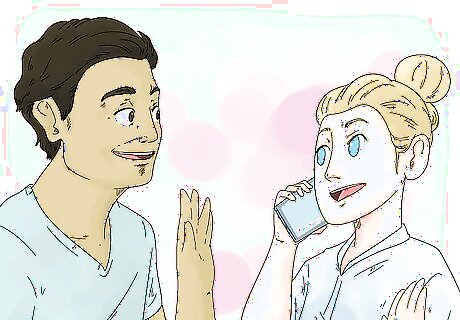
Remain civil when you see each other. If and when you meet accidentally, stay calm and collected. If you have friends in common, it may be difficult to avoid each other. If this is the case, it's not fair to ask your friends to choose between you two. Instead, ask your friends to let you know if the ex-friend will be at a gathering, and avoid going if he or she attends. If you do see your former friend in public, keep your distance and ignore them.

Self-reflect. There is something to learn in every situation, and this is no different. Look at this outcome from a positive point of view, as opposed to a negative one. For example, you now know that this person isn't a real friend, so you don't have to let them hurt you anymore. Hopefully you've learned how to better deal with conflict and how to stand up for yourself. Learn from this experience. You should never treat a friend the way this ex-friend treated you. This goes along with the famous saying "Treat others as you wish to be treated."















Comments
0 comment